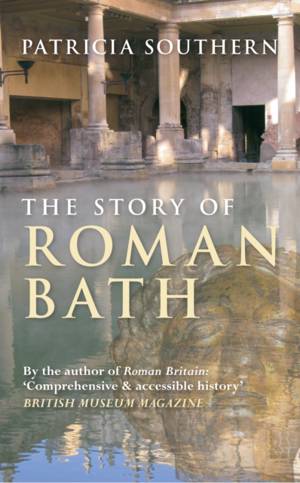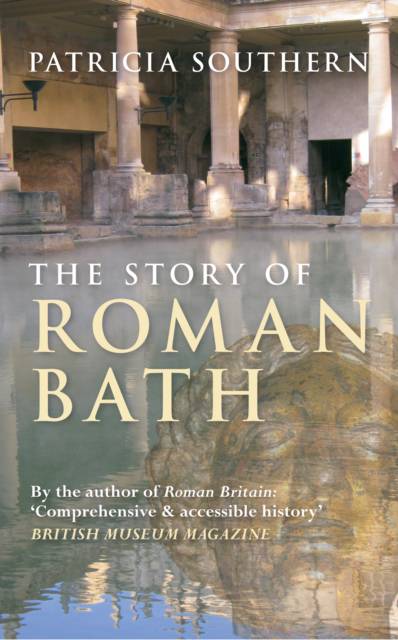
Je cadeautjes zeker op tijd in huis hebben voor de feestdagen? Kom langs in onze winkels en vind het perfecte geschenk!
- Afhalen na 1 uur in een winkel met voorraad
- Gratis thuislevering in België vanaf € 30
- Ruim aanbod met 7 miljoen producten
Je cadeautjes zeker op tijd in huis hebben voor de feestdagen? Kom langs in onze winkels en vind het perfecte geschenk!
- Afhalen na 1 uur in een winkel met voorraad
- Gratis thuislevering in België vanaf € 30
- Ruim aanbod met 7 miljoen producten
Zoeken
Omschrijving
When the Romans built the bath-and-temple complex of Bath in the late first century AD, they called the place Aquae Sulis, the waters of Sulis, a British deity who was equated with the Roman goddess Minerva. It was unlike any other town in Roman Britain, and it had no specific town status, compared to nearby Cirencester, which was a chartered town set up as a tribal administrative centre. All classes of people came to Aquae Sulis, to visit the temple of Sulis Minerva, the hot springs and the Great Bath. Soldiers on sick leave came to convalesce; Romans, Britons and slaves recorded their visits on various inscriptions since discovered during archaeological excavations. Gaius Calpurnius Receptus, a priest, was commemorated by his widow; Priscus, a stonemason from Chartres in Gaul, may have repaired some of the buildings; Vettius Romulus and his wife mourned the loss of their three-year-old daughter, Successa Petronia. Following the Romans' departure, from the fifth and sixth centuries the rise of Christianity ultimately caused the decline of pagan worship, and as the old gods were neglected, so were the buildings of Aquae Sulis, which disappeared under an accumulation of silt and mud. The baths and the temple of Sulis Minerva were rediscovered in the eighteenth century and the Roman baths that we see today were rebuilt by the Victorians. Patricia Southern's history charts the rise and fall of Roman Bath and examines the baths as they are today, part of a major World Heritage Site.
Specificaties
Betrokkenen
- Auteur(s):
- Uitgeverij:
Inhoud
- Aantal bladzijden:
- 240
- Taal:
- Engels
Eigenschappen
- Productcode (EAN):
- 9781445643793
- Verschijningsdatum:
- 15/01/2015
- Uitvoering:
- Paperback
- Formaat:
- Trade paperback (VS)
- Afmetingen:
- 124 mm x 198 mm
- Gewicht:
- 393 g

Alleen bij Standaard Boekhandel
+ 27 punten op je klantenkaart van Standaard Boekhandel
Beoordelingen
We publiceren alleen reviews die voldoen aan de voorwaarden voor reviews. Bekijk onze voorwaarden voor reviews.









